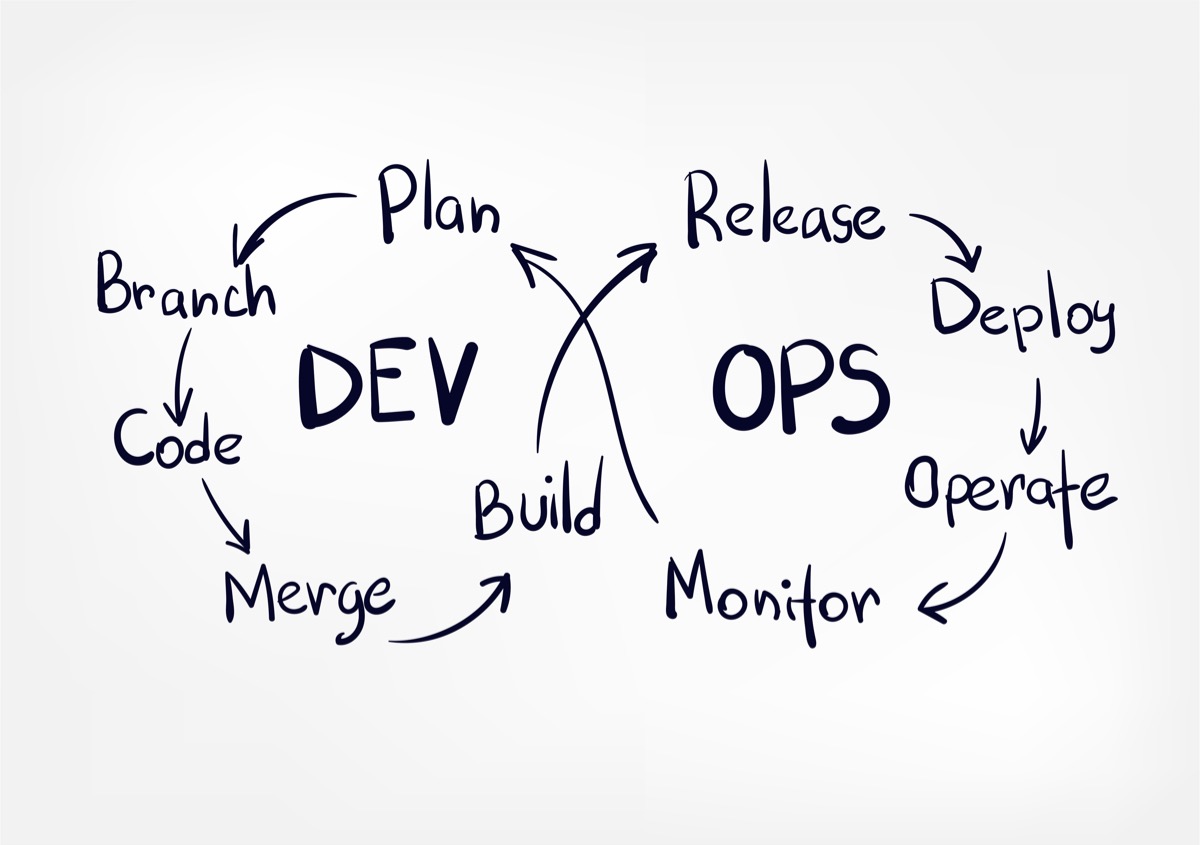What is DevOps, and How Can it Benefit Your Company?
- Reading time: 4 minutes

DevOps combines two methodologies: software development and IT operations. It is also a combination of practices, tools, and cultural philosophies that advance timelines by removing silos, merging teams into a single unit working toward a common goal.
By applying DevOps principles, we combine resources across teams and abilities, enhancing the evolution of new software products and deliver results faster and more predictably. On the other hand, traditional methods are often plagued by long cycles and tend to be more expensive and complicated when it comes to dealing with problems in the software.
The Benefits of DevOps
Companies apply DevOps as a way to reduce costs and bring a software product to market faster. Here are just a few of the ways DevOps can benefit your company:
1. Collaboration. DevOps breaks down barriers that occur when development and IT ops teams work independently. By sharing goals, responsibility, and workflows, there are likely to be fewer delays. Additional benefits of collaboration include skills enhancement and a generally more fulfilled team all around.
2. Reliability. Quality assurance is an integral component of the DevOps model. Since continual testing is part of the workflow, bugs are discovered, logged, and remediated immediately, resulting in a more reliable result.
3. Speed. Much like Agile, DevOps is about speed, but it expands on the Agile methodology to encompass end-to-end service delivery and how the software product interacts with a company’s existing operational systems. The result is accelerated time-to-value and a significant competitive edge.
Five Proven Methods To Build Trust With Your Outsourcing Team

4. Innovation. DevOps empowers companies to innovate and bring new solutions to market quickly. Plus, the nature of collaborative teams brings new ideas and perspectives to light that might not have been brought to the table otherwise.
5. Scale. DevOps provides organizations with highly scalable infrastructure and a solid platform to enable rapid growth.
Implementing A DevOps Framework

As with any new initiative, it’s wise to consider the implications before you begin. Here are a few DevOps considerations to ensure your efforts are a success.
- Cultural Shift. DevOps is largely about cultural transformation, so there’s bound to be some friction. It might take a little time to become functional, but if you play the long game, provide the proper training, and build bridges, you will see results.
- Prioritize Security. Security should be built into all phases of the DevOps workflow. It generally involves bringing in an additional team, but it will reduce vulnerabilities and, ultimately, align efforts to your organization’s objectives.
- Use the Right Tools. Automation is at the heart of DevOps, so the right tools must be in place to facilitate the effort. Tools must also be deployed to support communication and collaboration between teams. Members should have the flexibility to bring in loosely-coupled toolsets—a critical factor when working with outsourced teams.
As for team structure, the ideal model for a DevOps team will vary between organizations and will greatly depend on culture and the skill sets at your disposal. However, there is plenty of evidence to show that DevOps do very well with distributed teams, which opens the doors to using top talent wherever it might exist.
Whatever your software development needs might be, LDxLab can help. Our highly skilled team is trained in Agile and DevOps best practices, ensuring the success of your project. So tell us about your project, and let us show you what a high-performance team is all about.
